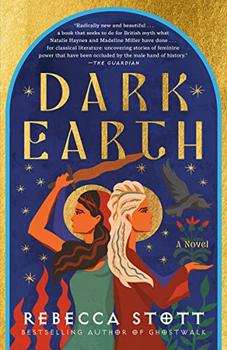Summary | Excerpt | Reading Guide | Reviews | Beyond the book | Read-Alikes | Genres & Themes | Author Bio

The Book of Longings by Sue Monk Kidd follows the life of Ana, a woman born in the Galilean city of Sepphoris at the start of what would become known as the Christian Era. Telling her story in the first person, Ana relays her journey from adolescent to aged wisewoman, along the way illustrating the challenges faced by women of her day, particularly those determined to have a voice in a culture where they were largely invisible. Oh, and incidentally, Ana proclaims herself to have been the wife of Jesus of Nazareth.
The work's title, The Book of Longings, describes the heart of this novel perfectly. Throughout Ana's life, first as the daughter of a high-ranking official, then as the wife of a poor carpenter and finally as a member of a community devoted to study and prayer, her obsession is to write. She continually expresses a yearning to pursue her passion in spite of most of those around her insisting literacy is incompatible with her role in society; only her aunt and husband seem to understand her compulsion. Ana's longings are palpable throughout the book, and while she ages and matures, the undercurrent of desire remains constant, never abating.
Having Ana's situation change radically throughout the course of the novel is a brilliant concept; it enables the author to explore multiple aspects of female society while fully developing her main character. Readers consequently get a glimpse of how women of status were viewed as well as those who labored within a poorer community. As the action moves to Egypt, Kidd elaborates on culture in Alexandria, one of the most cosmopolitan cities of the day. From start to finish, she provides rich historical detail, adding minor touches to her canvas to paint a full picture of Ana's life. On a special occasion, Ana's cloak is "dyed scarlet, and not from cheap madder root, but from the rich red of female insects." The street market is "busy with vendors peddling tools, bolts of cheap flax, butchered animals, and stews for the workers." A construction site has "wooden cranes and hoists lifting unhewn stones, men stirring mortar with long staves."
I enjoyed this novel immensely, but found myself irritated by what I felt was a bit of "bait-and-switch" based on its published description. It's billed as centering around the protagonist's partnership with Jesus, but in actuality the two are separated for most of the book and their lives seldom intersect. Ana mentions Jesus's relationship with God, but just in passing and without any real depth. Where one might expect to read about the evolution of Jesus's philosophy, the narrative stays laser-focused on Ana's everyday life as she tends to the family livestock and performs the chores expected of her. She's present for the very beginning and the very end of his ministry, but there's zero interaction with him during the years he was active. The choice to have her married to the Jesus consequently seems unnecessary, a mere hook to raise interest in the novel or to elevate its profile by making it appear controversial. I think this choice harms the book; some readers may start it looking for new insight into this historical figure (and will be disappointed, because Jesus barely makes an appearance), while others may approach it feeling unable to reconcile their view of Jesus, son of God, with a Jesus human enough to have married.
Despite this, it's worth noting that there's nothing in the book that's contrary to scripture. The Bible never mentions that Jesus had a wife, or that he was single, either, but at the time it would have been reasonable to expect a Jewish man to marry.
There's nothing particularly challenging about the themes contained in The Book of Longings, but it's nonetheless superb historical fiction and a great tale of female empowerment, especially for those interested in learning more about the time period and readers who enjoy a feminist take on history.
![]() This review was originally published in The BookBrowse Review in May 2020, and has been updated for the
April 2021 edition.
Click here to go to this issue.
This review was originally published in The BookBrowse Review in May 2020, and has been updated for the
April 2021 edition.
Click here to go to this issue.

If you liked The Book of Longings, try these:

by Jamila Ahmed
Published 2024
In this riveting take on One Thousand and One Nights, Shaherazade, at the center of her own story, uses wit and political mastery to navigate opulent palaces brimming with treachery and the perils of the Third Crusade as her Persian homeland teeters on the brink of destruction.

by Rebecca Stott
Published 2023
A captivating novel about two sisters fighting for survival in Dark Ages Britain that casts a thrilling spell of magic and myth.
Courage - a perfect sensibility of the measure of danger, and a mental willingness to endure it.
Click Here to find out who said this, as well as discovering other famous literary quotes!
Your guide toexceptional books
BookBrowse seeks out and recommends the best in contemporary fiction and nonfiction—books that not only engage and entertain but also deepen our understanding of ourselves and the world around us.